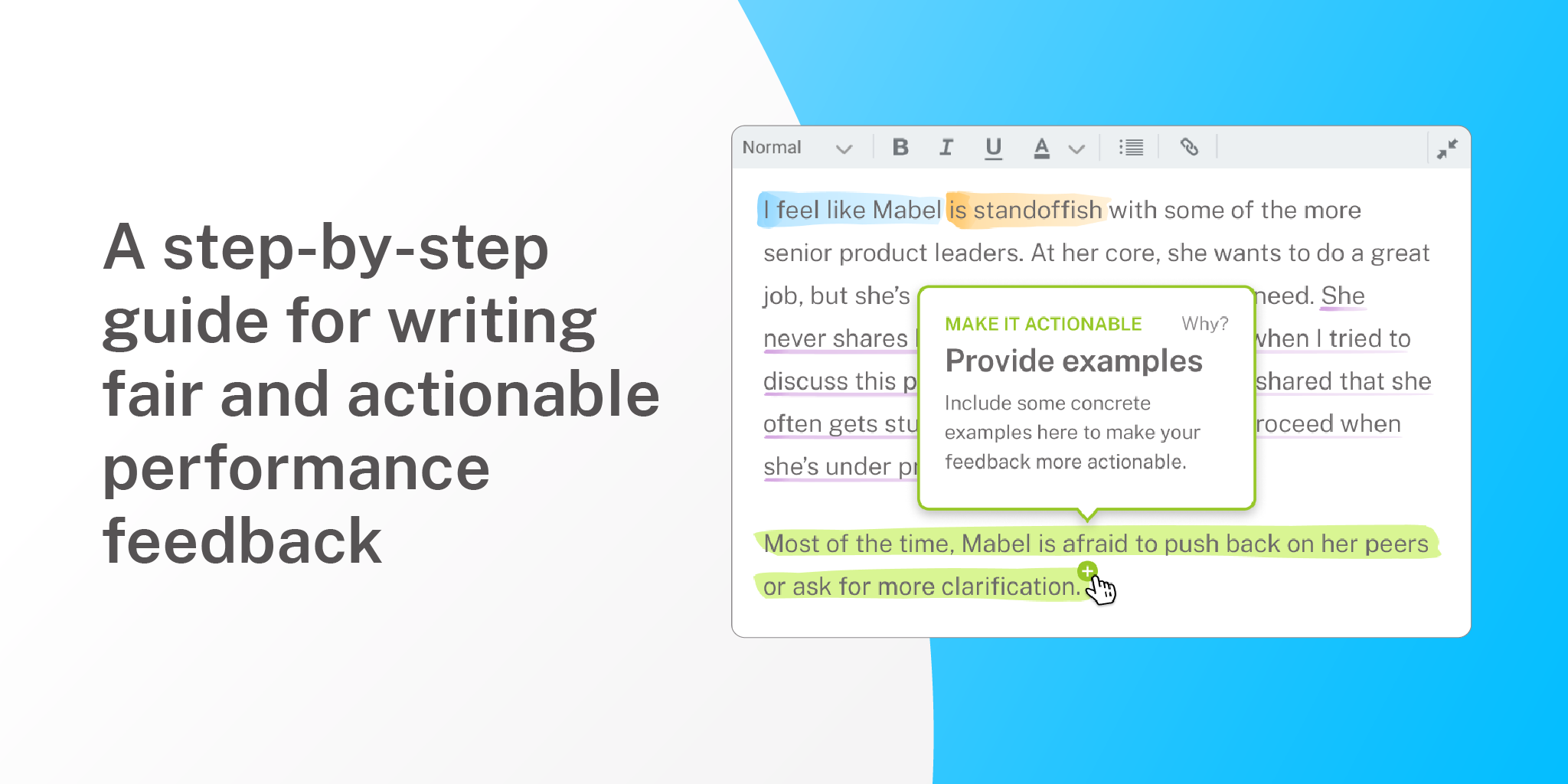The first-time manager’s guide to writing performance reviews
Elevate your managerial skills by mastering fair and actionable performance reviews. Our guide simplifies the process for first-time managers.
Cassie Sanchez
Lifecycle Marketing Strategist
February 16, 2024

These tips are covered in more depth here: How to write a performance review as a first-time manager
- Get guidance and training: Get advice, wisdom, and training if it’s available, from folks in your company and network. Take Textio’s free Equitable Performance Feedback certification course.
- Start gathering employee performance insights: Gather peer reviews; the employee’s self-review; one-on-one notes; project reporting; emails/internal messages; and awards.
- Block out plenty of time: Put ample time in your calendar now to both absorb the performance insights about your employee and also to write your review(s).
- Review best practices: Look through general best practices to set up your mental framework. Check out Textio’s performance review dos and don’ts.
- Learn about biases: Be aware of common unconscious social biases as well as other rater biases, including anchor bias, proximity bias, recency bias, and halo bias.
- Review performance goals and role rubrics: Look through the documented performance expectations of your employee’s role. Clarify anything that’s unclear.
- Review employee performance insights: Read through all the input you’ve gotten on your employee’s performance. Write down your key observations.
- Check out equity-focused templates: Study well-constructed review frameworks, including these templates for eight different types of employee reviews.
- Reconsider ChatGPT: Don’t put your employee’s performance data—your company information—into a public tool. Also, ChatGPT writes ridiculously biased performance reviews. Don’t do it.
- Do consider generative AI: Safe and secure gen AI tools like Textio Lift can coach you through writing a fair and effective performance review. They’ll also do some of the writing for you.
- Use the CARE framework: Good feedback is Clear, Actionable, Relevant, and Examples-based. Incorporate these elements into your assessment.
- Use the SBI model: As you‘re writing out examples, try using the SBI (Situation-Behavior-Impact)™ framework. It will help you give more detailed and helpful references.
- Check for bias, legal, and/or ethical issues: Do a review yourself, and then also use tech, research, your company’s process or software, your People people—whatever you’ve got.
- Don’t overthink it: All you can do is your best, right? Give it your best and move on. Expect a lot from yourself—but don’t expect perfection. You got this!